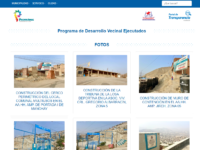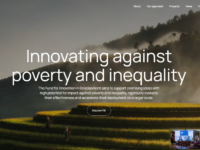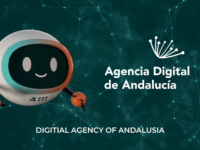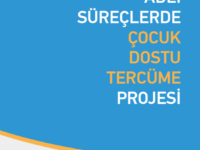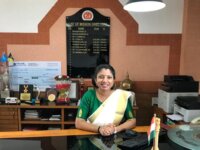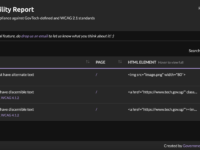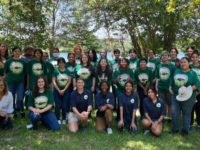The area of Quebrada de Manchay and Centros Poblados Rurales de Pachacamac, Lima is characterised by a lack of property formalisation, a lack of public infrastructure, underemployed population and a high rate of tax debt. The MINKACUNI programme aims to carry out minor works with neighbourhood associations through targeted fundraising campaigns. It is innovative because it is a participatory and collaborative alternative that promotes a tax culture.
Innovation Tag: Development and Aid
The Innovation Fund for Development (Fonds d'Innovation pour le Développement) is a new and ambitious funding mechanism. It offers grants to innovators and researchers to experiment, take strategic risks and demonstrate the impact of solutions aimed at reducing poverty and inequality. It enables teams from all types of organisations to test new ideas and put innovation and research at the service of transforming public development policies.
The techDetector is the first technology radar giving an overview of emerging technologies that have the potential to influence the area of sustainable development in the future. It lists future technologies from all sectors of sustainable development and assesses their potential impact on sustainability and gender equality. The techDetector helps inform, sensitize and support foresight processes, enabling better decision-making by providing sound information on technological developments.
The provision of European funding for economic recovery after the pandemic favored the provision of significant aid to citizens that needed to be managed quickly to ensure financial sustainability. Previously, this was done manually, which caused difficulties in resolving them in due time and form. For this reason, the aid robotization process was implemented to speed up the procedures, releasing administrative burdens and responding to citizens' requests in an agile and efficient way.
The project is aimed to prevent the loss of the rights of refugee children in Türkiye due to language and translation difficulties in judicial processes. Children involved in judicial processes, translators, judges-prosecutors and other auxiliary judicial staff have benefited very much from the project. For the first time, the capacity of translators has been strengthened and the secondary trauma risks of children have been mimized.
Guided by a vision with people at its heart, WFP is harnessing the benefits of blockchain technology in its operations. Since 2017, WFP and its partners have been applying blockchain technology through the “Building Blocks” (BB) project to help achieve its mission while working with the wider United Nations/INGO community to push for greater efficiency across humanitarian and development operations.
KSPO has created the SOLF, Seoul Olympic Legacy Forum as a platform where Olympic legacy entities from all around the world gather for the first time to share and collaborate on sustainable development plans for the Olympic Legacy. Through the SOLF, Olympic legacy entities communicated and cooperated with each other to solve the long-term social problems after the Olympic games and to deliver intangible legacy of Olympic spirit and world peace to future generations.
Project Sampoorna, successfully implemented in Bongaigaon district of Assam, is a model that can be easily implemented anywhere in reducing child malnutrition. This project has resulted in reduction of malnutrition in children by 95.6 % within 1 year in Bongaigaon district using very less economic investment. It is an initiative for tackling SAM and MAM by using Weight for Height growth chart & Empowering Mothers by employing Buddy Mother concept along with community participation.
Purple A11y is a customisable, automated web accessibility testing tool that allows software development teams to find and fix accessibility problems, to ensure all users have access to inclusive digital services, especially the elderly and persons with disabilities (PWDs). It is an open-sourced solution to automate periodic tasks and the testing of government digital services.
The Austin Civilian Conservation Corps (ACCC) began as a pandemic response program to help residents earn income and access green careers, and has evolved into a leading model for equitable, climate-focused workforce development. The ACCC, a collaboration with 10+ City departments and multiple community partners, has provided over 125 living-wage opportunities with supportive services, training, and career pathways for Austin’s underserved residents, and is actively shaping the green economy.

